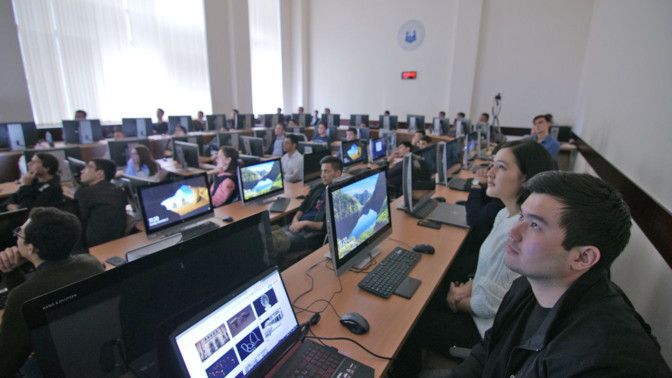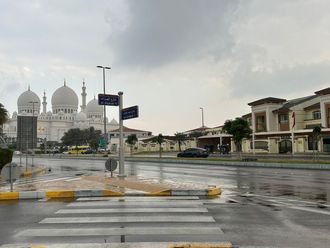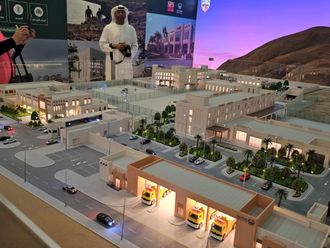
Davos: The UAE on Thursday announced the launch of a global initiative to teach the skill of coding to five million young people from disenfranchised communities in 50 countries
The “Global Coder” initiative, said to be the biggest coding project in the world, was announced at the World Economic Forum (WEF) 2020 in Davos.
Under the directive of His Highness Shaikh Mohammad bin Rashid Al Maktoum, Vice-President and Prime Minister of the UAE and Ruler of Dubai, the Mohammad bin Rashid Al Maktoum Global Initiatives (MBRGI) made the announcement of the initiative.
It will be jointly run by MBRGI and Dubai Future Foundation (DFF) and will teach the skill of coding to five million young people from disenfranchised communities around the world.
“Today at Davos, the UAE launched the largest global programming education project targeting 5 million young people in 50 countries around the world. Empowering societies and fighting poverty begins with education. Teaching the future, the future of opportunities lies in learning the programming language ... The UAE continues to send a message of hope to the entire world,” His Highness Shaikh Mohammad Bin Rashid Al Maktoum, Vice-President and Prime Minister of the UAE and Ruler of Dubai, tweeted.
Certifications of evidence
Upon completion of the programme, the youth participants will receive certifications of evidence to show their new, future-economy qualification.
The major coding initiative represents a global human-centric endeavour by the UAE to spread hope and provide a bright future for the less fortunate communities in the world by equipping them with the skills and knowledge to become experts in the language of the future: coding. Having professional experience and expertise in coding, it is believed, will help disenfranchised youth to rise above the daily challenges and open-up opportunities for them to thrive, innovate and better their communities.
The news was announced as part of the UAE delegation’s participation in the World Economic Forum (WEF) 2020 in Davos, at the “Reimagining the World’s Biggest Challenges” Panel, organised by Global Citizen.
Mohammad Al Gergawi, Minister of Cabinet Affairs and the Future and Secretary General of MBRGI said: “Building on the vision of Shaikh Mohammad Bin Rashid Al Maktoum, the UAE is pushing a transition towards greater utilisation of technology in humanitarian efforts to empower communities. This vision is the same that UAE was founded upon, and one that provides a reference point for all its future initiatives and projects.”
‘Biggest coding project’
He added: “The ‘Global Coder’ initiative is a signal of support and hope from Shaikh Mohammad to the world’s youth. He believes that empowering the youth with knowledge lays the foundation for a stable international community. Shaikh Mohammad’s lead on this, the biggest global coding project, will reach 50 countries around the world.
He concluded: “Teaching five million young people how to code is the biggest worldwide project in its field, which MBRGI and DFF will collaborate to implement.”
Khalfan Belhoul, Chief Executive Officer of DFF, said: “The ‘Global Coder’ initiative will provide a fully-integrated, educational platform to teach computer science and coding in partnership with the biggest global organisations, under the supervision of internationally-certified experts to ensure the training programme is the best, most comprehensive of its kind.
“The platform will be free to use for millions of young individuals from around the world and will aim to build a future global community equipped with the tools and skills of coding, and one that is qualified to positively impact the creation of technologically-driven jobs. That, in turn, will contribute towards the development of a sustainable knowledge-based economy and the enhancement of the technology sector in various communities.”
He added: “This initiative, to be implemented by MBRGI and DFF reflects the UAE’s emphasis on sharing its expertise with the world in the hope of providing a bright, promising future for youth in disenfranchised communities by equipping them with future-ready skills and capabilities, to provide them with job opportunities that can better their communities.”










